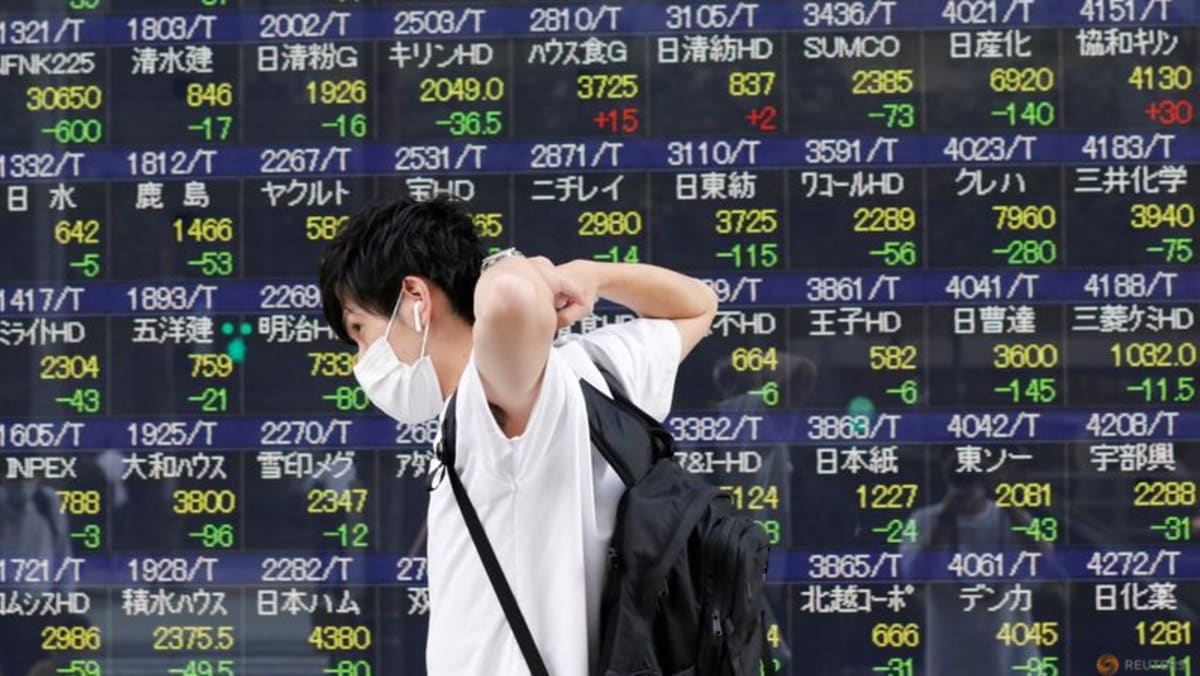Asia stocks relieved by payrolls inflation test looms

SYDNEY : Asian shares edged up on Monday as risk assets basked in the glow of the upbeat October payrolls report, though caution was warranted ahead of a reading on U.S. inflation that could spook the rate horses.
The congressional passage of a long-delayed U.S. US$1 trillion infrastructure bill cheered investors, though a broader social safety net plan remains elusive.
Data out over the weekend also showed China's exports beat forecasts in October, though imports lagged.
Early moves were modest with MSCI's broadest index of Asia-Pacific shares outside Japan up 0.1per cent. Japan's Nikkei added 0.3per cent, but was just short of the recent five-week peak.
Nasdaq futures were off 0.2per cent, after 10 straight sessions of gains which left the index looking over extended. S&P 500 futures dipped 0.1per cent.
Friday's U.S. robust payrolls report included upward revisions to the previous couple of months and another strong reading on wages.
Tightness in the labour market combined with dislocation in global supply chains should result in another high reading for U.S. consumer prices due on Wednesday, with any upside surprise likely to rekindle talk of an earlier Federal Reserve hike.
Analysts note an alternative measure of core trimmed mean inflation has already picked up markedly to an annual 3.6per cent.
"Another acceleration in the monthly annualised trimmed CPI will reinforce our view that the Fed is behind the curve," said Kim Mundy, a senior economist & currency strategist at CBA.
"The longer the FOMC waits to tighten monetary policy, the greater the risk the FOMC tightens more to bring inflation back under control."
No less than six Fed officials are speaking on Monday, with the most attention likely on Vice Chair Richard Clarida who is talking on Fed and ECB policy.
After some wild swings, Treasuries still managed to end last week with a rally, thanks partly to a huge drop in UK bond yields where short-dated debt enjoyed its best week since 2009 after the Bank of England skipped a chance to hike.
That led the market to push out the likely timing and pace of tightening not just there, but in Europe and the United States too. Fed Funds now have a rate rise fully priced by September 2022, instead of July, a second not until February 2023 instead of December 2022.
Yields on 10-year Treasuries dived 10 basis points on the week an were last at 1.46per cent.
The drop took a little steam out of the dollar, which had hit a more than one-year high after the payrolls data. The dollar index was holding at 94.290, from a top of 94.634.
Still, the BoE's shock decision left sterling down 1.4per cent over last week and trading at US$1.3489, while the euro touched a 16-month trough before steadying at US$1.1563.
The dollar had more trouble sustaining its bull run on the Japanese yen, leaving it testing support around 113.25.
The retreat in bond yields was a boon for gold, which offers no fixed return, and lifted it to US$1,815 an ounce.
Oil prices firmed after OPEC+ producers rebuffed a U.S. call to accelerate output increases even as demand nears pre-pandemic levels. [O/R]
Saudi Aramco also raised its official selling price of crude to all buyers across the globe.
Brent rose 22 cents to US$82.96 a barrel, while U.S. crude gained 34 cents to US$81.61 per barrel.
(Reporting by Wayne Cole; Editing by Himani Sarkar)
0 Response to "Asia stocks relieved by payrolls inflation test looms"
Post a Comment